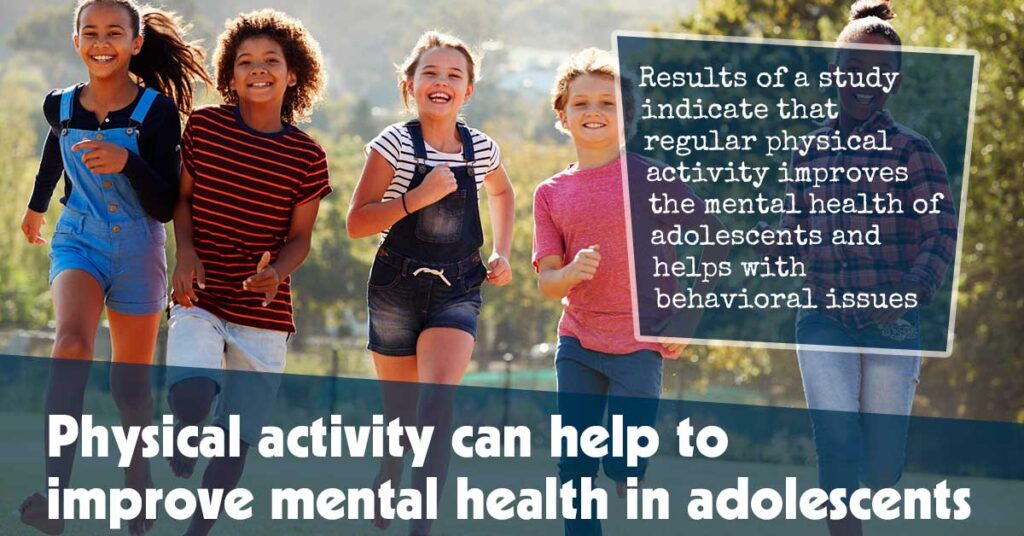Study results reveal that regular physical activity helps adolescents maintain positive mental health and deal with behavioral issues more effectively. Participation in moderate-intensity physical activity between 11-13 years old was associated with improved mental wellbeing in that age range.
Physical activity was associated with decreased hyperactivity and behavioral issues in young individuals, such as theft, lying, fighting with other kids and an overall loss of temper.
Data were analyzed from the Children of the 1990s study, where 4755 11-year-olds’ physical activity was assessed with devices.
Devices used in this study measured moderate levels of physical activity – such as cycling or brisk walking – as well as vigorous activities that increase breathing and heart rates, such as swimming, jogging and aerobic dancing.
Depression was reported among 11 to 13-year-old individuals and their parents, as well as being queried by teachers and parents about general behavior issues and emotional concerns among these participants.
Analysis of moderate to vigorous exercise on mental health and behavior of young individuals included socioeconomic status, sex status and age factors.
Research showed that increasing moderate or intense physical activity levels had a small yet noticeable correlation with lower emotional issues and depressive symptoms.
Regular exercise was shown to have a small but notable relationship to reduced behavioral issues, even after accounting for all possible factors.
Results suggest that regular moderate and intense physical activity may have some protective effect on early adolescent mental health.
This study adds to a growing body of evidence showing the importance of physical activity to young individuals’ overall development, from school improvement and improved wellbeing, to supporting healthier active lives for their futures. Supporting young individuals should always be prioritized.
Physical activity can improve mental health; however, little evidence has shown such benefits in young individuals and children; thus making the results of the study particularly significant. Furthermore, only 3 out of every 4 preteens worldwide achieve the WHO-recommended 60 minutes of moderate-to-vigorous intensity activity every day – an impressive feat considering less than one third do so!

